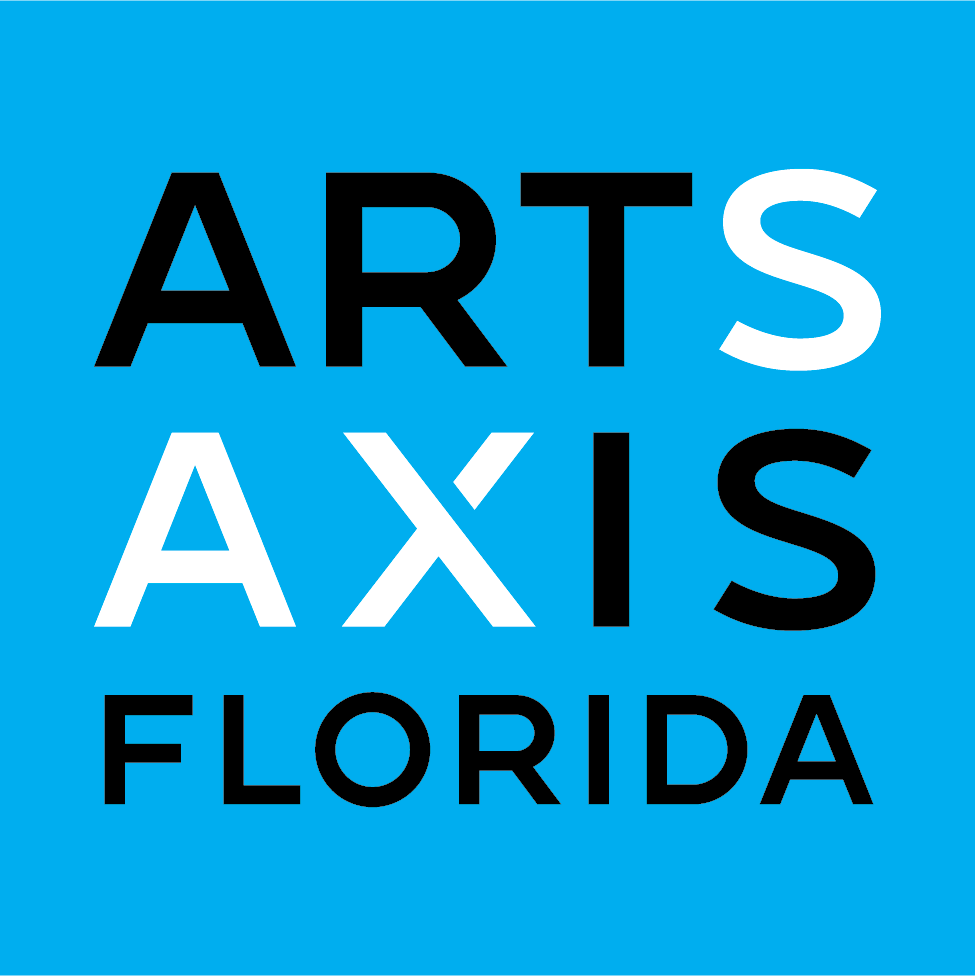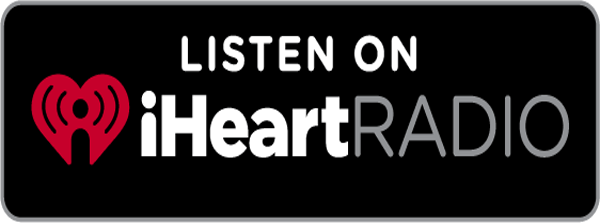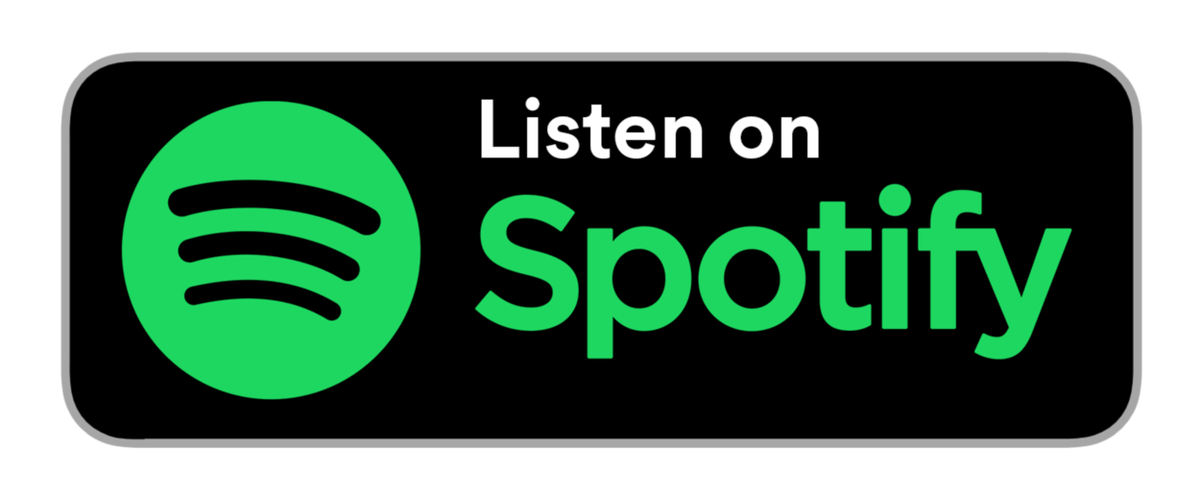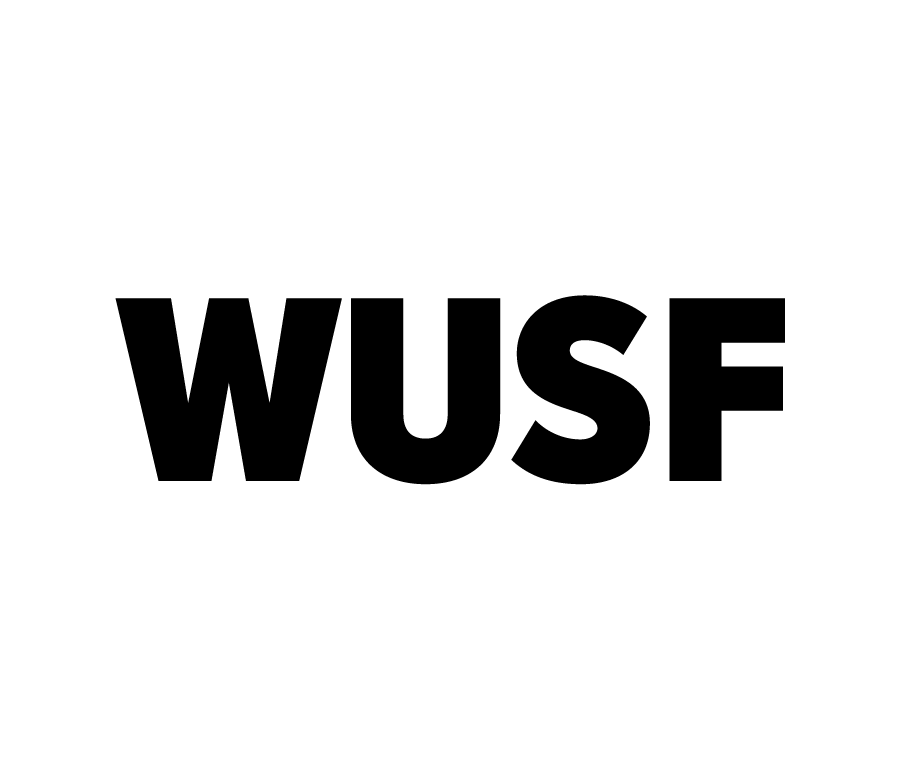00:00:04:16 - 00:00:39:04
BRIANA JACKSON
Hi. Welcome to the Arts Axis Florida podcast. I'm your host, Brianna Jackson. Arts Access Florida is a comprehensive initiative designed to shine a spotlight on your neighborhood's diverse arts organizations. Each episode will highlight their programs and more importantly, amplify the voices of the people they impact. Conversations, community, and connections; that is a value in engaging with your local arts organizations. Arts Axis equals Arts Access.
00:00:45:22 - 00:01:00:17
SPONSOR
Support for Arts Axis Florida comes from the Community Foundation of Tampa Bay, championing philanthropy, encouraging and connecting givers to bring lasting good investing in education and economic mobility. Learn more at C F TAMPA BAY DOT ORG
00:01:03:21 - 00:01:28:00
BRIANA JACKSON
Today on the Arts Access Podcast. We'll be talking to three local groups that are working hard to help give a voice to the sometimes overlooked and underserved members of our community. First up is our conversation with Fran Powers from Power Stories Theater in Tampa. Theater and performance power Stories focuses on the telling of true stories of women and girls to help connect and motivate others.
00:01:28:14 - 00:01:55:19
BRIANA JACKSON
Cornelia Corky Aguilera and Linda Edmundo from the Outcast Theater Collective also stopped by to talk about how theater can bring voice to the oppressed through interactive performances that educate and inspire. Finally, I'll be speaking with Angela Motts of Matriiarch is mentoring work with young black women and girls of color helps promote confidence and helps them create connections with organizations within their community.
00:01:58:17 - 00:02:03:01
BRIANA JACKSON
Hey, Fran, it's great to have you on the Arts Axis Florida podcast. How are you?
00:02:03:07 - 00:02:04:15
FRAN POWERS
I'm great. How are you doing?
00:02:04:16 - 00:02:09:19
BRIANA JACKSON
I'm doing great. Thank you. So just tell us a little bit more about yourself and what you do.
00:02:10:18 - 00:02:38:20
FRAN POWERS
I'm Fran Powers. I'm the founder of Power Stories Theater, and I've been doing this for about 20 years. I always had a vision of starting a theater ever since I was ten years old. Kind of had that dream of doing that, but really didn't get started doing it until my forties. A lot of people have heard my story of riding my bike across the United States in my early forties, and as I crossed the Wyoming border, I kind of had this vision that I needed to start the theater.
00:02:39:09 - 00:02:47:06
FRAN POWERS
What was I waiting for? So when I got back to Tampa, I started Power Stories Theater, and that's what I'm doing today. And I'm loving every minute of it.
00:02:47:07 - 00:02:51:17
BRIANA JACKSON
Yes. And now fast forward to present day. You made that dream a reality.
00:02:51:23 - 00:03:13:14
FRAN POWERS
Well, the dream doesn't become a reality without a lot of other people helping you with having without having a clear vision. I sat on my sofa when I got back from my bike riding, and I wrote all of my goals and my plans and things like that. For almost a year. And I still had hadn't done much. And so I said, for heaven's sakes, get off your butt and start doing something.
00:03:13:14 - 00:03:21:10
FRAN POWERS
So I finally, after about a year, the bike ride started the actual theater. So it takes a lot of action, a lot of hard work and a lot of people to help you.
00:03:21:20 - 00:03:23:11
BRIANA JACKSON
What type of stories are you telling to your audience?
00:03:24:03 - 00:03:51:08
FRAN POWERS
We typically almost exclusively tell true stories. The mission of the theater is staging true stories to open minds and hearts. I was very enamored in my early years with young girls and women who oftentimes said, I don't have a story to tell. What's so special about my life? And I that really stuck with me. And so I've always wanted to help women tell their stories and so their true stories of a wide variety.
00:03:51:14 - 00:04:00:07
FRAN POWERS
We do a lot of published works now on our main stage but over the years, we've helped individuals tell their true stories for their own purposes, whatever that might be.
00:04:00:08 - 00:04:11:02
BRIANA JACKSON
Walk us through how a production is developed so let's say you have a story. You've decided what story you want to bring to life. What do you do next once you have the idea?
00:04:12:07 - 00:04:29:04
FRAN POWERS
Well, the first thing we do is if it's going to be a story on our main stage. We have an artistic committee and the artistic committee. They're out looking for the right true stories to tell on our stage. There's a lot that goes into what's going to be the right true story because we have to take into account the number of actors that can fit on our stage.
00:04:29:09 - 00:05:01:07
FRAN POWERS
Can we get the right talent? You know, is the set going to be something that we can build on our stage? Cause our theater here on Kennedy is pretty intimate. We have 45 to 50 seats depending on the show. So when we're looking for the story, in addition to all those things it has to be a story that will inspire people, educate people, and have some kind of a resolve meaning at the end so that the audience can walk out of the theater with having learned something or having a conversation starting at the local bar next to us.
00:05:01:07 - 00:05:04:10
FRAN POWERS
You know, so that so that the story continues on.
00:05:05:13 - 00:05:14:07
BRIANA JACKSON
Can you give us an example of a particular story or production that you remember left a really big impact on your audience? Is there any particular one?
00:05:15:09 - 00:05:43:23
FRAN POWERS
One that we did last year was called These Shining Lives, and it was a true story of the radium girls. You probably heard that story. It is the story of women who were hired to work in factories and they used to paint with with paint the dials of clocks, but the paint was radioactive and it killed them. So at the beginning of the story, you know, the women telling the story are going to die.
00:05:44:06 - 00:06:03:03
FRAN POWERS
And the audience knows that right away that they are not going to live. And they tell the story of these women who are very brave. And then they took this all the way to the Supreme Court. And because of those women, we have a lot of great working environments, safety in our work environments. So it was a true story that really resonated with people.
00:06:03:04 - 00:06:05:06
FRAN POWERS
People walked out thinking, I didn't know that.
00:06:05:10 - 00:06:16:01
BRIANA JACKSON
How do you ensure that stories that were based, you know, or as early on as the 1900s impact the younger audiences today who who don't know of these experiences in this history.
00:06:16:12 - 00:06:34:16
FRAN POWERS
Well I can't say that I know for sure that they're impacting them. I I hear them as they're in the theater talking to their moms talking to us about. I didn't know that that happened back then. I didn't know that you could work someplace and a boss would would not have integrity or a boss would treat you like that.
00:06:35:00 - 00:06:48:17
FRAN POWERS
So it gives the parents a great opportunity to talk to the young people and say, you need to be careful when you when you take jobs you need to listen to your own heart, believe in what's right for yourself. So so all all those kinds of elements take place.
00:06:49:07 - 00:06:56:03
BRIANA JACKSON
Yes. And what I love about that is you're still finding you're still finding a way to connect to different generations.
00:06:56:18 - 00:06:57:11
FRAN POWERS
Absolutely.
00:06:57:12 - 00:07:00:16
BRIANA JACKSON
I read that you were invited to the White House. Is that.
00:07:00:16 - 00:07:02:14
FRAN POWERS
True? It was true.
00:07:02:19 - 00:07:03:23
BRIANA JACKSON
It was more about that.
00:07:04:19 - 00:07:27:13
FRAN POWERS
We we were invited to the White House for the work that we're doing with our young girls. They they look for organizations across the country, about ten to 15 a year that are doing really in-depth work with young girls. And we had we had let them know about our program. And for a couple of years, we kept writing them and letting them know about our program.
00:07:27:13 - 00:07:45:17
FRAN POWERS
And finally, the year came when they recognized us. And I remember very clearly a big envelope comes to the house and my husband calls me. I was at an orientation meeting with young girls, and he said, there's an envelope that came from the White House. And I said, Open it. I want to hear what it says. And then I said, No, don't open it.
00:07:45:17 - 00:08:04:10
FRAN POWERS
I want to read it myself. Finally, I said, Open it. It says, you've been invited to the White House in honor of the work that you're doing with young girls. So it was it was a great moment. And then the letter said, you cannot tell anybody. You have to keep it a secret. For six months. So I immediately went and told a few people, but not too many people, just the staff.
00:08:04:16 - 00:08:07:11
BRIANA JACKSON
You have to share, at least with some. This is the White House.
00:08:07:22 - 00:08:08:18
FRAN POWERS
Exactly.
00:08:09:02 - 00:08:10:15
BRIANA JACKSON
And who did you get to meet at the White House?
00:08:11:17 - 00:08:34:16
FRAN POWERS
We met with the first lady, Michelle Obama. And also attending the ceremonies were a lot of dignitaries there were some celebrities there and things like that. But most importantly, there were young kids there. Every organization got to bring one young person with them to the White House. So of all the girls that we had to select, we we ended up selecting one young girl to go with us.
00:08:35:13 - 00:08:36:12
BRIANA JACKSON
Who was that young girl?
00:08:37:03 - 00:09:01:04
FRAN POWERS
That was Natalie and she had to do a presentation in front of the the staff. We did not tell them that the prize would be a trip to the White House. We asked the young girls to do a presentation in case they were going to be talking about power stories to maybe the mayor or someone like that. And Natalie, along with three or four of the girls, made this presentation.
00:09:01:04 - 00:09:02:13
FRAN POWERS
And she's the one who was selected.
00:09:02:13 - 00:09:07:03
BRIANA JACKSON
And when you got the chance to meet the first lady, what did she say about power stories?
00:09:07:08 - 00:09:30:01
FRAN POWERS
She said in her opening remarks, she made a presentation to everyone was there. She actually mentioned power stories as being an organization that helps young girls know their their truth and their their self-worth by true storytelling. And she was kind of talking about that to the audience. She talked about all of the organizations so we all to we got a sentence or two in there.
00:09:30:10 - 00:09:51:16
FRAN POWERS
But when I met her, she gave Natalie big hug and she she whispered in my ear, you're doing a great job. And she talked a lot about how the arts organizations and and teachers are often doing such great work with young kids. And they oftentimes don't get the recognition, which is one of the reasons why she wanted to have this award.
00:09:52:05 - 00:10:00:23
BRIANA JACKSON
And did you ever think way back when you're on that bike and the idea popped into your head that you would eventually be at the White House?
00:10:01:01 - 00:10:32:23
FRAN POWERS
No! No. That's why I tell the young girls, dream big. Don't don't forget about your dreams. Keep, keep keep them in your forefront. You know, when you dream big, be specific. Think about what you want. I never thought about being in front of the White House, you know, but when you're I really do believe that when you're on the right track and you're and you're working with passion, with what you're doing that good things will happen and may not happen when you want like this last year with the pandemic.
00:10:33:12 - 00:10:35:22
FRAN POWERS
But good things will happen. Just stick with it.
00:10:36:10 - 00:10:46:10
BRIANA JACKSON
Yes, absolutely. So you also have the the Voices of Truth Festival. Can you tell us more about this festival and how we can all access it?
00:10:46:14 - 00:11:08:12
FRAN POWERS
It's the Voices of Truth theater festivals being produced by our stories. And we are working with another theater company, Outcast Theater Collective, between the two theaters, where really bringing a lot of diversity to our audience so an individual can go to our website Power Stories dot com and right there in the middle is the Voices of Truth Theater Festival.
00:11:08:12 - 00:11:39:10
FRAN POWERS
They can click on that and they can see 14 nights and there are 16 shows during those 14 nights. They can read about the play, they can read about the playwright, and they can click on and buy a $10 ticket. They can also buy a festival pass if they want to for $99 and then that the day before the show you will get in your email a message from us that gives you the link to the show and the password.
00:11:39:22 - 00:12:02:13
FRAN POWERS
And so then seven 30 at night shows and rolls around and you click on and you can watch the playbill virtually. And then the show starts at eight. And then what's really exciting, which makes us very live, is every single playwright is going to come on at the show's over, so we'll invite you to a zoom room and everybody watching the show can meet the playwright and meet the actors and we can have a conversation.
00:12:03:20 - 00:12:08:00
BRIANA JACKSON
So you're still able to give that opportunity for your audience to interact.
00:12:08:08 - 00:12:12:19
FRAN POWERS
That's the piece that makes it really lively. And, and in the now for us.
00:12:12:22 - 00:12:17:00
BRIANA JACKSON
What type of feedback have you received with this new virtual way of interacting?
00:12:17:01 - 00:12:34:11
FRAN POWERS
You know, a lot of us theater goers kind of have the same attitude that I did, kind of kicking and screaming a little bit like, no, no, no, this isn't like theater. But then we relaxed and we saw the beauty of it. You know, you can watch a show on Zoom and you get to see the actors face or you get to see their emotions.
00:12:34:11 - 00:12:47:13
FRAN POWERS
You get to it's everything is up close and personal. So there's a lot of benefits to it. And the directors and the actors there, they're loving it because it's another avenue for them, too. They're also learning a new skill.
00:12:48:15 - 00:12:54:22
BRIANA JACKSON
Can you tell us what you see is your role in giving a voice to the marginalized community in the Tampa Bay area?
00:12:55:16 - 00:13:19:04
FRAN POWERS
Well, I think we are, our vision is that we will be known for the theater that really works on that, that works on telling those true stories. So we have our biggest outreach program is the Girl Stories, Leadership Theater, and that is a program that we went to the White House for. And we always need a lot of assistance in this program.
00:13:19:11 - 00:13:41:13
FRAN POWERS
This is a program where we have middle school girls come into our theater. Typically last year, we did it virtually. We have about 20 to 25 middle school girls come into our theater and for two to three weeks they learn everything from soup to nuts, on to theater. It's called a it's called theater and leadership. So they are learning all the theater things, but everything is laced with leadership.
00:13:41:13 - 00:14:08:04
FRAN POWERS
What we can teach them how to speak out loudly and proudly and how to believe in themselves. And it always ends up with them with the performance. And then we work these girls the rest of the year continuing with theater and leadership. And that's one of our largest outreach programs. In addition to that, just this season of shows that we do, we are always looking for people to to help us put on a quality show.
00:14:08:23 - 00:14:31:21
FRAN POWERS
So we're looking for directors of actors and people that want to work in the lobby and people that want to be on our board of directors or people who want to read plays for us and bring a great play you know, where we're going to be doing more festivals going forward. So if there's anybody out there who has written a play, a true story play, we want to know about it because we'll be looking for them.
00:14:32:03 - 00:14:51:23
FRAN POWERS
They can submit it to me, Fran @ Power Stories dot com and there is on our website the very front main page, something that says Submit your stories so they can click on that and they can submit their story there. Or they can just send it to a fran @ power stories dot com
00:14:51:23 - 00:14:59:13
BRIANA JACKSON
And Fran, I have one more question for you. How do you feel power stories will help prepare young women, especially for the future?
00:15:00:04 - 00:15:27:15
FRAN POWERS
We have to help these young girls celebrate themselves. We have to help them celebrate themselves. Honor themselves. And one of the ways that we do that is helping them know who they are. And when we work with them, we help them tell their own personal story. We do something called a matriarchal chant on all of our shows, which is honoring your maternal line, your maternal line.
00:15:27:15 - 00:15:41:16
FRAN POWERS
So we help these young girls understand who they are and be very proud about sharing it with other people. And I think that goes a long way in helping them feel good about themselves and able to speak out loud and proud.
00:15:41:20 - 00:15:46:12
BRIANA JACKSON
That's a wonderful, absolutely wonderful mission. And Fran we thank you so much.
00:15:46:19 - 00:15:47:20
FRAN POWERS
Oh, you're welcome.
00:15:59:03 - 00:16:13:13
BRIANA JACKSON
The Voices of Truth Festival has passed, but not to worry. You can check out how to access those and other performances on their website. You can find the links and contact information for Fran in our shownotes.
00:16:13:13 - 00:16:20:05
BRIANA JACKSON
Hi, Linda and Corky. Welcome to the Arts Access Florida podcast. Let's jump in to the first question. And Corky I'll start with you.
00:16:20:15 - 00:16:23:11
BRIANA JACKSON
Introduce us to the Outcast Theater Collective
00:16:23:11 - 00:17:04:09
Sure. Thanks for the question. My name is Cornelius Aguilera, but everybody calls me Corky, and I work with the Outcast Theater Collective. We are a nonprofit organization based in the Tampa area, and we work to enhance theatrical diversity within this area through the facilitation and professional development of artists from marginalized communities. We use a particular type of theater called Theater of the Oppressed, created by a theatrical practitioner called Augusto Boal, and basically its many exercises, games and forms of theater that work to bring the theater back to the people.
00:17:04:09 - 00:17:28:23
CORKY AGUILERA
And when I say the people, I basically mean everybody, not just those with the means to be able to afford the experience or to be able to purchase a ticket, but the people. So we've been excited about utilizing this form of theater in order to enhance diversity, not only through the theatrical community in the Tampa area, but also to use it to break into other spaces.
00:17:29:05 - 00:17:32:20
CORKY AGUILERA
And we've been doing that pretty successfully even throughout the pandemic year.
00:17:32:20 - 00:17:57:15
LINDA EDMUNDO
We also reach out to the communities, and another big difference is we find out what the interests of the communities are and we tell their stories. So they can bring their stories to us. And then they're seeing themselves portrayed or realistic situations that they may face.
00:17:57:15 - 00:18:03:20
BRIANA JACKSON
And Linda, I love how you said the focus is telling real stories And that is a conversation starter.
00:18:04:12 - 00:18:45:03
LINDA EDMUNDO
Exactly. It's it's phenomenal because what we've done is we've we've connected with the University of Wisconsin, the YWCA, Metro, Phenix and Planned Parenthood. And or different communities can reach out to us and say, hey, we had this issue. This is what's happening and this is important to us. Can you kind of come up without give us their their scenario, the situation? And we come up with the story and we kind and the way we do it is fascinating because we kind of just brainstorm.
00:18:45:03 - 00:18:54:21
LINDA EDMUNDO
So it's not about writing a script, but we're actually improving it and we come up with the scene as a collective.
00:18:54:21 - 00:19:16:06
CORKY AGUILERA
Right. So along with the different organizations that Linda has just mentioned, we're also working with the School of Education at USF. And actually in the next couple of hours, we're going to be presenting phase three of what we're calling an event to talk about race and racism in the College of Education.
00:19:17:10 - 00:20:07:17
CORKY AGUILERA
Linda was very influential and was able to help us create an original scenario for the first phase where we were talking about the struggles that some of the doctoral students have in trying to just complete their doctorate right within the program. And then the second phase was about creating that conversation with the faculty about that scenario and seeing whether or not they had any ideas as to how we could go about it differently so that it's not as burdensome for these doctoral students, many of them who are from larger representing marginalized communities, actually Linda was able to play the role of one of those students who was able to share their testimony, their story about what
00:20:07:17 - 00:20:33:18
CORKY AGUILERA
had it occurred so that we could express it to this educational community. And then today's phase is going to be looking at what are the what are the impressions? What are these institutional impressions that we're dealing with and how can we go about challenging them? What are some some realistic, practical plans and actions that can be constructed and it's all done within a forum based collective conversation.
00:20:33:18 - 00:20:48:10
CORKY AGUILERA
So we're we're mixing the theater along with what might be traditionally experienced within those circles as a forum conversation to come up with better outcomes, better solutions for everybody that's involved
00:20:48:10 - 00:21:18:21
LINDA EDMUNDO
And this is a spectacular part. Imagine this is interactive. So it's not just hearing us, then the spectators, the audience becomes suspect actor, and then you have the opportunity to offer your your a possible solution. Well, have you ever kind of talked to the TV or why couldn't you just do this? Or, you know, well, here's your opportunity. You raise your hand. Well, I would have liked to have. Seen this and then we said, wonderful.
00:21:18:22 - 00:21:25:18
LINDA EDMUNDO
Why don't you give it a try? And then you can come in and enjoy it and join us and show us from your perspective.
00:21:25:18 - 00:21:29:23
BRIANA JACKSON
Wow. What is the importance of confronting oppression in the moment that it happens?
00:21:30:12 - 00:21:56:11
CORKY AGUILERA
Yeah, sometimes it's so subtle, right? And it's it's it's the initial shock of the experience that kind of kind of keeps you some folks still. And it's almost like you have to question it in your mind whether or not that really, really occurred. And then you have to sort of kind of ahead of time in your own head think, well, if I were to respond to it, what are the repercussions of that sort of inaction?
00:21:56:11 - 00:22:17:01
CORKY AGUILERA
How is that, what will that do to this circle or that I'm included in? Right. So there's a ton going on. There's a lot going on in your head. And so then that sometimes is what makes it so hesitant for folks to really act or to really, you know, speak truth to power or challenge any of these oppressions.
00:22:17:07 - 00:22:49:10
CORKY AGUILERA
And so then what we what we say is that one of the reasons we enjoy this work so much is that we can recreate that particular scenario based on whatever has been contributed by the audience that we're working with. Right. They can create that particular oppression, recreate it, and then use it as a rehearsal for reality. But and so then multiple folks are able to come in and intervene as they see fit how what it is they can bring forth whatever plan they think they can utilize in order to come out with a different ending.
00:22:49:22 - 00:23:00:12
CORKY AGUILERA
But at the same time, for other folks that may be not familiar with that experience, are actually able to feel what it's like to step in the shoes of that particular protagonist or that individual that's been oppressed.
00:23:01:14 - 00:23:13:18
BRIANA JACKSON
That's I'm taking all of this and there's a lot to digest, but it's such good information and it's so necessary with where our society is right now. And this is what we all need.
00:23:13:23 - 00:23:49:18
CORKY AGUILERA
And again, we can't take all the credit. What we're doing is basically just sort of not educating, but we're showing off, I guess, with this particular type of theatrical form entails. As was mentioned earlier, it was created by the late and great Augusto Boal, it seemed like the perfect tool to do the type of work that we had expressed right are getting more work in the hands of artists from marginalized communities using the exercise and the games that are part of this arsenal in order to equip our actors with the tools necessary in order to successfully compete within the theatrical market of this area.
00:23:50:03 - 00:23:58:15
CORKY AGUILERA
But also getting their stories on that stage right making sure that they become the main characters and the protagonists.
00:23:58:15 - 00:24:17:09
LINDA EDMUNDO
As you were talking, Corky, I'm also thinking, you know, prior to covid we were meeting in person, but it seems that this using Zoom, we have been able to reach people in India and just draw an audience from all over.
00:24:17:16 - 00:24:25:12
LINDA EDMUNDO
Whereas I, I don't know how possible that would have been had we remained in person.
00:24:25:12 - 00:24:38:16
CORKY AGUILERA
Yea and the performances get recorded. And that's one of the reasons I think we were able to solidify some work. And this is contractual work right. And a lot of theaters are not able to say that they're going to be contracted to do work out in Phenix, Arizona.
00:24:39:03 - 00:25:04:21
CORKY AGUILERA
But like Linda was saying, the fact that the medium is gone virtual somebody was able to catch the performance that we did back in May of last year and say, you know what, we could definitely use some of this for our organization because we're having some issues with this this topic or this subject. And before you know it, we're in that virtual space with their members and doing the work that we've been that we evolved for this format.
00:25:05:07 - 00:25:10:16
BRIANA JACKSON
Sounds as though the Outcast Theater really thrived going virtual with their with their audiences.
00:25:11:11 - 00:26:00:21
LINDA EDMUNDO
Yes, we we really have. Because we have been able to reach more people and I really like the way that we're able to even just to tell the stories, other people's stories. So you actually get to see what you're going through presented on the screen and then to we have also written some of our stories and have shared that as well. So it's been an excellent opportunity. I know Jewels More, she wrote a conversation with myself and that was just a fantasy piece about mental illness and coming out and just so many things.
00:26:00:21 - 00:26:11:10
BRIANA JACKSON
Linda could you tell me a bit more about the Voices of Truth Festival? We talked a lot about, you know, telling impactful stories and the voices. The Truth Festival does exactly that.
00:26:12:23 - 00:27:02:14
LINDA EDMUNDO
Definitely. So that the theme is it's so important to hear real stories so that's where we get the voices of truth. So we're hearing and we're writing about and talking about actual events that have happened in people's lives and like these are not made up things then. And in sharing with the audience, it's actually kind of for me, it was very intimate because you have to actually let down your guard and you're. Sharing your innermost thoughts with the world. And it's but it was liberating at the same time because it was like I could just be myself and be accepted.
00:27:02:14 - 00:27:20:06
CORKY AGUILERA
And that we're able to be an outcast and do the work that we're doing and be contracted to do it. Even in the time event of a pandemic. It's just it warms my heart. And with the Voices of Truth Festival, in conjunction with Power Stories, Theater and Outcasts, was actually at was invited to be a huge part of it, to collaborate with us.
00:27:20:11 - 00:27:43:20
CORKY AGUILERA
And we created all these original pieces that we were able to, like, put a wrap together or put into a box and wrap up with a nice tiny bow and share with the rest of the community that, yeah, we even though the theaters were down, it doesn't mean that the theater stopped. We were still producing and creating original pieces that were start that were starting artists from our marginalized communities.
00:27:43:23 - 00:27:48:23
BRIANA JACKSON
Wow. I love this collaboration with Power Stories. It's such a powerful movement.
00:28:00:15 - 00:28:10:15
BRIANA JACKSON
We have a full list of resources for the Outcast Theater Collective listed in our show notes. They have numerous upcoming productions that you will definitely want to check out.
00:28:16:23 - 00:28:19:18
BRIANA JACKSON
Hi Angela, welcome to the Arts Axis Florida podcast.
00:28:20:09 - 00:28:22:13
ANGELA MOTT
Hi! Thank you for having me.
00:28:23:04 - 00:28:31:19
BRIANA JACKSON
So Angela, you are doing some incredible work in the community, lifting up our young black girls. Can you tell us more about what you're doing?
00:28:32:03 - 00:29:21:16
ANGELA MOTT
So I'm the founder of an organization called Matriarch. Matriarch is essentially a platform to equip black women to become advocates and practitioners for community, public policy and service. And so we formed partnerships with other companies and education institutions that value diversity and female led social justice intervention. And then once we equip you and provide you with some training, we try to place you in that partner organization or help you come in as a consultant within that organization, or just taking to marginalized identities, black and female, amplifying them as valuable leadership essentials contained in the narrative around how ethnic identity serves, public policy, community service through gender and racism.
00:29:21:16 - 00:29:52:01
ANGELA MOTT
I came up with the concept of matriarchs because I love elephants, and I was watching a documentary on elephants and how it was basically centered on the matriarch and how she leads her herd to these spaces and how these spaces are thriving spaces where they can be well replenish themselves and then mentor other leaders along the way. And one of the things that stood out with me is the focus on mentoring the little ones.
00:29:52:02 - 00:30:28:04
ANGELA MOTT
And so that's where her impact comes in. So her impact is a nonprofit entity of matriarch and its focus on girls intentionally on black girls, not exclusively, but intentionally and engaging them and community and civic engagement through all sorts of things. Like we do mentoring, outreach services. We get them involved in civic engagement building. So we're basically building a leadership pipeline with our youth so that they can later on become matriarchs down the line.
00:30:28:11 - 00:31:28:04
ANGELA MOTT
They're the next generation of matriarch. And so we we work with girls individually, but our board is also awesome group of women that leads programs for girls that focus programs that focus on black girls. And so we have a bunch of healthy allies that we work with that will provide resources whether it's material resources through our scholarship program, emotional resources, especially during this time and practical things like care packages for the girls essential like hygiene essentials for girls that we work with, either serving as a resource for other smaller programs or working directly to individual and with individually, with with girls individually. So that some of the things broad scope that we do through her impact in the community.
00:31:28:15 - 00:31:44:13
BRIANA JACKSON
Wonderful. Angela, the arts has always been a way for African-Americans to express the troubles they face, as well as the joy of being black in America. How have you utilized the arts as a form of communication in your organization?
00:31:45:19 - 00:32:18:06
ANGELA MOTT
So like we know about Toni Morrison, Zora Neale Hurston, these awesome iconic writers, and now we have [inaudible] inauguration that Josephine Baker is in the beyond stage. I just feel like art is just this phenomena for us to be able to articulate exactly how we feel through a dance move or we were like in a book or documentary or film, is just I it's it's so abstract.
00:32:18:06 - 00:32:50:00
ANGELA MOTT
I just I love it. So so some of the girls you've gotten involved with and Spoken-Word and poetry, and that's been a huge outlet for them because again, it's allowing them to use their voice over their own life. We've had a couple of writing competitions in the past that we've kind of made fun and dance competitions. We did a couple of vision board parties.
00:32:50:00 - 00:33:21:11
ANGELA MOTT
Last year I had some of the girls write a short script and direct a commercial for their future business, so it was so fun to see them like scripted commercial for their braiding hair salon or for their law firm or their presidential campaign. Like it was awesome to see them use that, that form of art. One of the things I really love that was fun that we did.
00:33:21:11 - 00:33:49:22
ANGELA MOTT
We've done it a couple of years ago. We haven't done it recently, and this really works with our younger girls is taking photos on their phones. We would go to an area downtown or to a park somewhere, and they would just take their phones out and snap some photos, and then we would come back and they would write about why they chose that picture, how they felt when they took the picture, what it means to them.
00:33:51:04 - 00:34:24:15
ANGELA MOTT
And you just be amazed at some of the stuff that they came up with, like, Oh, I just thought you took a picture of this plastic spoon because you're all hungry. Maybe talk about like the the curvature of the spoon and how life curves this way for them sometimes and straight for them. And they want to be on the straight path is just like really amazing where they would take it and just to see them be able to communicate using that medium and feel safe. I hope to be able to do more of that in the coming months.
00:34:25:10 - 00:34:47:14
BRIANA JACKSON
That's amazing. And I love that you're you're introducing them to the art of expression and how to get involved in the arts. And who knows, maybe this might spark interest in one of them to pursue the arts, which is just a great way to just be in touch with yourself and express your thoughts and ideas and totally open up. So I love that concept.
00:34:48:14 - 00:35:05:04
ANGELA MOTT
You can feel safe. You can insulate yourself. I grew up playing piano and flute and I grew up in a tumultuous home. So just being able to go to my piano lesson and play for like hours. Gosh, that was like heaven to me.
00:35:05:07 - 00:35:06:14
BRIANA JACKSON
So it was your escape?
00:35:07:03 - 00:35:31:16
ANGELA MOTT
Yeah. I didn't have to think about anything at all. And I was playing angry mad, busy envisioning my future and how my family was going to get better, all just practicing piano. So just giving them that outlet, it does, it really does make a difference. And then it's also, like you said, a form of exposure. So we do expose them to these different writers and different artists and poets.
00:35:31:16 - 00:35:40:20
ANGELA MOTT
They really love poetry and spoken word because it's so it can be so gritty and emotional and they kind of they can connect to that.
00:35:41:06 - 00:36:05:07
BRIANA JACKSON
In our previous segments, we've spoken to people from power stories and The Outcast Theater. Both of those organizations have programs that help some of the marginalized communities in Tampa Bay to use and raise their voice what are your thoughts on the importance of these types of programs? And also, have you noticed changes in students who have gone through some of these types of programs?
00:36:06:08 - 00:36:44:16
ANGELA MOTT
These are important because they change the narrative. They change the story arc. If the origin of black female identity in this country is negative and it's based on negative historicity and enslaved men and cast changing the narrative means you have to provide a platform for these voices to be heard outside of that echo chamber, because that's kind of how we exist no matter how big we get or how far far we reaching or what position we obtain in this country.
00:36:45:09 - 00:37:14:09
ANGELA MOTT
I'll use Michelle Obama as an example. She still exists in this this echo chamber of chattel slavery in America. So even as a first woman. So being able to use your voice as a person of this that this history has marked but as an individual is huge to changing the narrative of how we see black females and black female leadership in this country.
00:37:14:09 - 00:37:59:06
ANGELA MOTT
So I would say the more the merrier. And so having these local platforms for girls, I've seen a lot of girls specifically gain confidence and find their voice through spoken word because it gives them a chance to practice all those skill sets, public speaking and then poetry and writing and presentation skills. And so once the girls have gone through these clinics, some of the local clinics I've seen, they come out completely different.
00:37:59:06 - 00:38:41:10
ANGELA MOTT
They have a new confidence about them. And that imposter, imposter syndrome goes away after they've been in for a while. The same with dance. I've seen girls thrive because again, the black female body has been politicized, exploited and exhibited in other countries for over over hundreds of years. And so to see these these girls being a dance troupe where they can own their bodies and they can strengthen their body through that art form, I mean, those girls I'll to say the dance girls are just like they're so confident because they own their own skin again.
00:38:41:10 - 00:39:08:14
ANGELA MOTT
And they own it in a way that they appreciate themselves so much more by going through these very rigorous sometimes dance programs where they come out so much more confident and confident in using their voice. So I do definitely see an impact on how the arts can provide that that space for them. I love what Art Axis is doing with increasing the brand awareness for the local Tampa Bay arts community.
00:39:09:01 - 00:39:23:07
ANGELA MOTT
I think it's awesome and just almost a phenomena to me to be able to articulate pure feeling through music, dance and other mediums. So thank you all for your work that you're doing in the community.
00:39:24:02 - 00:39:46:10
BRIANA JACKSON
Angela, thank you so much for your time today. I am just over the moon impressed with what you do in the community. Especially for our young black girls. And as a black woman, I thank you. This is a program I wish I was in when I was younger, so thank you for just doing what you do for the community.
00:39:46:10 - 00:39:53:00
BRIANA JACKSON
Well, I don't know about you, but I had no idea this type of work was being done in our own backyard.
00:39:53:17 - 00:40:22:04
BRIANA JACKSON
It's one thing to know what the organizations are doing to address challenges in our community. But it's another to actually hear from someone that these programs impacted first hand. I truly hope you enjoy today's episode as much as I have. And as always, you can find all the information about today's guests in our show notes I'm Briana Jackson, and you have been listening to the Arts Axis Florida podcast.
00:40:22:14 - 00:40:59:09
BRIANA JACKSON
This show is a product of WUSF Public Media with the help of our founding sponsor, the Community Foundation of Tampa Bay. Our show is produced by Aaliyah Moffitt Chandler Balkcom and Leslie Laney. A special thanks to our editor, Scott Walker. And our entire engineering team. You can find out more information, performances and other content that our local arts groups are creating by following us on Facebook or Instagram and visiting our website, Arts Axis Fl dot org. That's Arts A X I S F L DOT ORG copyright 2021 WUSF Public Media.
New Paragraph
